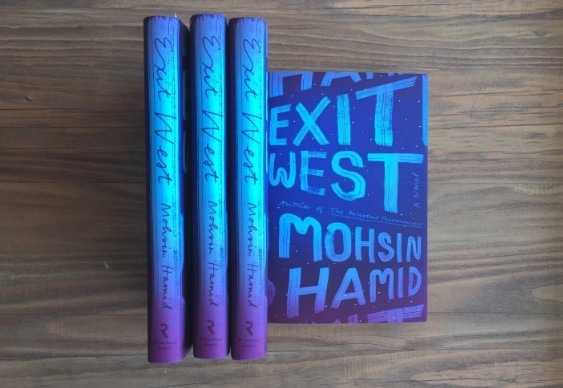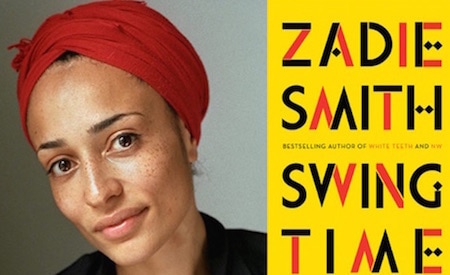|
Defeating Death ... The Real - Life Atticus Finch
There has probably never been a more appropriate title for book than Just Mercy by Bryan Stevenson. This book is about striving for justice. against unsurmountable odds. This book is about sweet mercy that some need and deserve more than others ... and then some. It is a non-fiction/memoire book that reads like informative, inspiring short stories of legal defense cases by the author. The book begins with the author’s explanation of how he got into law in general, then specifically into defending mostly poor, black men unfairly convicted in the South, and on death row. Downer topic you think? In fact, it’s anything but. It’s engaging, alarming and inspiring. In the late 80s, while at Harvard on scholarship, Stevenson, who grew up poor in Deleware, took an internship at the Southern Center for Human Rights, which represents death-row inmates. Before long, he decided to make a career of helping the poor and defenseless, including moving to Montgomery, AL. Steveson has dedicated his life to the under represented through legal defense and public speaking on the topic to raise money for the organization he started called the Equal Justice Initiative. The book largely, but not exclusively, focuses on the case of Walter McMillian, a black man wrongfully accused, and eventually convicted, of the death of a young white woman. Stevenson gives a blow by blow of McMillian’s entire legal process, including a mockery of a trial, his long wait on death row, and his ultimate exoneration. Through it, you get to know McMillian as a man, a human, a victim. You also become personally attached and admiring of his counsel, Mr. Stevson, who works tireously on Walter’s, and many others like him, behalf. Through it, Stevenson is usually emotionally drained, financially broke, and working on his own. In between Walther’s arrest, conviction and exoneration, Just Mercy, weaves in other stories about those basically abandoned by the legal system. The reader is educated by Stevenson of the short comings of the American legal system - past and present. He unabashedly reveals the corruption and misconduct among usually white figures of authority, such as sheriffs, prosecutors and judges in which poor blacks are most frequently the victim. He also discusses and demonstrates, by way of one particular alarming story, how non-white youth are all too often beat down by an unfair and uncompassionate judiciary system. By the book’s end, you are restraining tears on Walter’s behalf, have adopted Stevenson as your unsung hero, and ready to take up the charge. You are also not putting this book on your shelf for you realize it is much better served being passed along to enlighten and inspire.
1 Comment
A Timely Novel of Relationships and Refugees
Exit West by Mohsin Hamid is a creative, complex, and a deeply felt saga that reads as a fable-like tale, with some unexpected (and unexplained) mystical elements. At the same time it feels as distant as it does intimate, yet it works on both levels to draw the reader in to the world of refugees and immigrants. Set in an unnamed Middle Eastern City on the brink of civil war, readers are introduced to the main characters of Nadia and Saeed on the brink of falling in love. They are young gen x’ers who couldn’t be more different in personality - she is self-assured and independent and happily living alone, to his tender, quiet ways, dutiful to the parents he still lives with. They meet while taking evening classes, growing closer as they watch their country quickly fall apart. At first they can meet like normal new dating couples at cafes and coffee shops, but when soldiers with guns, curfews and checkpoints become their reality, their romance is interrupted and challenged. After Saeed loses his mother to a bullet, he reconnects with Nadia, suggesting for safety, he suggest she live with he and his dad despite being unmarried. It’s not long before this make-shift family realize the only real safety is out of their country, and the young lovers become refugees in other lands. The transition to Greece, England and ultimately America in the San Francisco Bay Area, is done almost magically as they go through doors that act as portals to their new locations. Settling in new locales is fraught with challenges on every level and takes it toll on the protagonists individually and as a couple. Hamid, known for his earlier novel, The Reluctant Fundamentalist, deftly draws fully realized characters and situations, subtly inviting the reader into their hardships and mindset. Intermixed throughout the story are vignettes about other secondary characters. Although, unlike Saeed and Nadia, these characters and their situations are not complete or as complex, they are interesting and add value to every scene they possess. Hamid is successful in steering the reader to sympathize with not just Saeed and Nadia, but with the immigrant story. You quickly realize these aren’t just black and white situations. They had a home and family, and now face an uncertain future. They aren’t “the others,” they are humans in search of inclusion and a better life Zadie Smith Takes Us Through Fast Friends & Fast Times in SWING TIME
Although it is commendable that Zadie Smith’s latest novel, Swing Time, is ambitious and somewhat interesting, it seems to fall short of it’s lofty goals. That being said, there is still no denying that Smith is an exceptional writer whom it is never a waste of time to invest reading whatever she’s serving up. For Swing Time she combines themes of friendship, class, fame, dance and coming-of-age. The former is in the form of childhood bff’s, minus the “forever.” The unnamed narrator meets a new girl, Tracey, at a dance class, noticing her as the only other “brown” girl from her hood, and admiring her seemingly effortless dance prowess this solidifies an instant connection allbeit often fraught with complications. Although the narrator has an absolute passion for classic musical movies, which she and Tracey watch tapes of, and she desperately wants to emulate the stars of the films, she is hopelessly mediocre to Tracey’s technique and flare. Also common between the two girls is racial background as both are the product of interracial parents. Both families are definitely working class, but Tracey’s from a sketchier part of their London neighborhood. Her father appears to be struggling with drugs and the law, which puts a strain on Tracey’s mother, a less educated and less ambitious version of the narrator’s mother. Community politics and identifying with her Jamaican roots are paramount to the narrator’s mother who continuously tries to assert her values on her daughter, looking down on her attraction to dance and the arts as a child, and later resents what she views as frivolous career goals. As time passes, the friends grow up, and grow apart and the novel focuses mostly on the narrator as a young adult who seems to go through college years and her professional years with indifference. Despite that, she lands a position as an assistant to Aimee, a celebrity singing sensation - turn philanthropist. The job takes her around the world to places like Sydney, New York and Gambia where Aimee is developing an all girls school, a la Oprah Winfrey. Despite the exotic locales and exciting projects, the narrator never seems to impress her mother or herself. She’s seems perpetually bored with work and life. Maybe this is because what she really wanted was a life in dance or theater, but didn’t have the talent or initiative to pursue it on any level. Becoming more disconnected to her parents, she barely communicates with them. She eventually encounters Tracey again - first as a professional dancer, and later under more unfortunate circumstances. Neither reignites the friendship or the story in that regard. It is the narrator’s perpetual sense of disconnect with people and things, and dissatisfaction with her work and life that permeates the novel. There seemingly is a lot going on in the novel, but yet not much going on with the narrator herself. For covering so much time and distance, Smith seem to forget to develop a dynamic character or even a protagonist we’re drawn into and care about. What can be appreciated is the short chapters, making the nearly 500 page book a faster read than you would expect. That and the fact that Smith’s way with words in and of itself is captivating. Her often delectable descriptions of people, places and situations is undeniable. It may make Swing Time worth a read, but not be enough to put it in the class of brilliance that her debut novel White Teeth is. |
Archives
January 2024
Categories |



 RSS Feed
RSS Feed